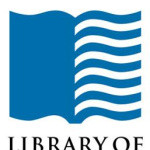- Industria: Culture; Government
- Number of terms: 1108
- Number of blossaries: 0
- Company Profile:
The Library of Congress is the U.S. oldest federal cultural institution and serves as the research arm of Congress. It is also the largest library in the world, with millions of books, recordings, photographs, maps and manuscripts in its collections.
Term usually juxtaposed with "red" (q. V. ). Denotes special knowledge or skills, or both, relating to economic management, science, and technology. Cadres are required to be both red and expert, the emphasis on one or the other depending on the current political milieu.
Industry:History
China's monetary unit, which in mid-1987 had an exchange rate of US$1 to -Y3. 72, or -Y1 to US$. 269. The yuan is divided into 100 fen, and 10 fen constitute 1 jiao. The currency is known as renminbi (RMB), meaning the people's currency. The inscription renminbi (or renminbiao) appears on bank notes as well as yuan, and the terms renminbi and yuan are used synonymously in quoting exchange rates. In transactions the terms are universally replaced by the word kuai (piece). Beginning in the early 1980s, the standard currency was paralleled by a special currency called Foreign Exchange Certificates, which were issued in exchange for "hard" foreign currencies.
Industry:History
Person who holds any responsible position in either the party or the governmental apparatus throughout the nation. Term usually denotes a person in administrative work. It often denotes, in a more restricted sense, a person who has been fully indoctrinated in party ideology and methods and uses this training in his or her work.
Industry:History
The basic-level organization through which party and government officials control social, political, and economic behavior of residents. The danwei typically controls the allocation of housing, grain, edible oil, and cotton rations; the issuance of permits to travel, to marry, and to bear or adopt children; and permission to enter the army, party, and university and to change employment.
Industry:History
Formerly the basic accounting and farm production unit in the people's commune system. Production teams were largely disbanded during the agricultural reforms of 1982-85. In the administrative hierarchy, the team was the lowest level, the next higher levels being the production brigade and people's commune. Typically the team owned most of the land and was responsible for income distribution. Since 1984 most teams have been replaced by villages. (See also people's commune, production brigade, village. )
Industry:History
Small coastal areas established beginning in 1979 to promote economic development and introduction of advanced technology through foreign investment. Special preferential terms and facilities are offered to outside investors in taxation, land-use fees, and entry and exit control for joint ventures, cooperative ventures, and enterprises with sole foreign investment. Special economic zones have greater decision-making power in economic activities than provincial-level units. Market regulation is primary.
Industry:History
A practice dating from the early years of the Chinese Communist Party. Denotes the reinstatement in positions of responsibility of former government and party officials and military personnel who had been accused of wrongdoing. Rehabilitations sometimes take place posthumously to clear a former leader's name and reputation.
Industry:History
The common spoken language; also called guoyu (national language). The official spoken language of China, used in its various forms by more than 70 percent of the population. The People's Republic government started promoting putonghua in 1956 for use in schools, the cultural arena, and daily life as a means of bringing about the standardization of the language used by the Han (q. V. ) nationality. Putonghua is based on the northern dialect, and uses Beijing pronunciations as its standard.
Industry:History
A system through which the people influence the policies of the government and party members influence the policies of the party; while the government and party maintain centralized administrative power to carry out the policies demanded by their constituents. Within both representative and executive organizations, the minority must abide by the decisions of the majority, and lower bodies must obey the orders of the higher level organizations. The concept, derived from the organizing principles of the Communist Party of the Soviet Union, was called for as early as 1928 by Mao Zedong.
Industry:History
A term referring to political and ideological attitudes prescribed by Maoist doctrine. Usually juxtaposed with "expert" (q. V. ), the term was seldom used in the 1980s.
Industry:History
